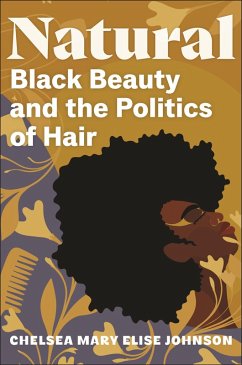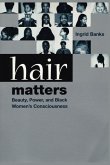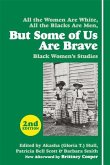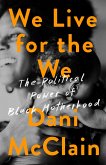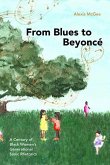How Black women celebrate their natural hair and uproot racialized beauty standards
Hair is not simply a biological feature; it's a canvas for expression. Hair can be cut, colored, dyed, covered, gelled, waxed, plucked, lasered, dreadlocked, braided, and relaxed. Yet, its significance extends beyond mere aesthetics. Hair can carry profound moral, spiritual, and cultural connotations, serving as a reflection of one's beliefs, heritage, and even political stance. In Natural, Chelsea Mary Elise Johnson delves into the complex world surrounding Black women's hair, and offers a firsthand look into the kitchens, beauty shops, conventions, and blogs that make up the twenty-first century natural hair movement, the latest evolution in Black beauty politics.
Johnson shares her own hair story and amplifies the voices of women across the globe who, after years of chemically relaxing their hair, return to a "natural" style. Johnson describes how many women initially transition to natural hair out of curiosity or as a wellness practice but come to view their choice as political upon confronting personal insecurities and social stigma, both within and outside of the Black community. She also investigates "natural hair entrepreneurs," who use their knowledge to create lucrative and socially transformative haircare ventures.
Distinct from a politics of respectability or Afrocentricity, Johnson's argument is that today's natural hair movement advances a politics of authenticity. She offers "going natural" as a practice of self-love and acceptance; a critique of exclusionary economic arrangements and an exploitative beauty industry; and an act of anti-racist political resistance.
Natural powerfully illustrates how the natural hair movement is part of a larger social change among Black women to assert their own purchasing power, standards of beauty, and bodily autonomy.
Hair is not simply a biological feature; it's a canvas for expression. Hair can be cut, colored, dyed, covered, gelled, waxed, plucked, lasered, dreadlocked, braided, and relaxed. Yet, its significance extends beyond mere aesthetics. Hair can carry profound moral, spiritual, and cultural connotations, serving as a reflection of one's beliefs, heritage, and even political stance. In Natural, Chelsea Mary Elise Johnson delves into the complex world surrounding Black women's hair, and offers a firsthand look into the kitchens, beauty shops, conventions, and blogs that make up the twenty-first century natural hair movement, the latest evolution in Black beauty politics.
Johnson shares her own hair story and amplifies the voices of women across the globe who, after years of chemically relaxing their hair, return to a "natural" style. Johnson describes how many women initially transition to natural hair out of curiosity or as a wellness practice but come to view their choice as political upon confronting personal insecurities and social stigma, both within and outside of the Black community. She also investigates "natural hair entrepreneurs," who use their knowledge to create lucrative and socially transformative haircare ventures.
Distinct from a politics of respectability or Afrocentricity, Johnson's argument is that today's natural hair movement advances a politics of authenticity. She offers "going natural" as a practice of self-love and acceptance; a critique of exclusionary economic arrangements and an exploitative beauty industry; and an act of anti-racist political resistance.
Natural powerfully illustrates how the natural hair movement is part of a larger social change among Black women to assert their own purchasing power, standards of beauty, and bodily autonomy.
Dieser Download kann aus rechtlichen Gründen nur mit Rechnungsadresse in A, D ausgeliefert werden.

